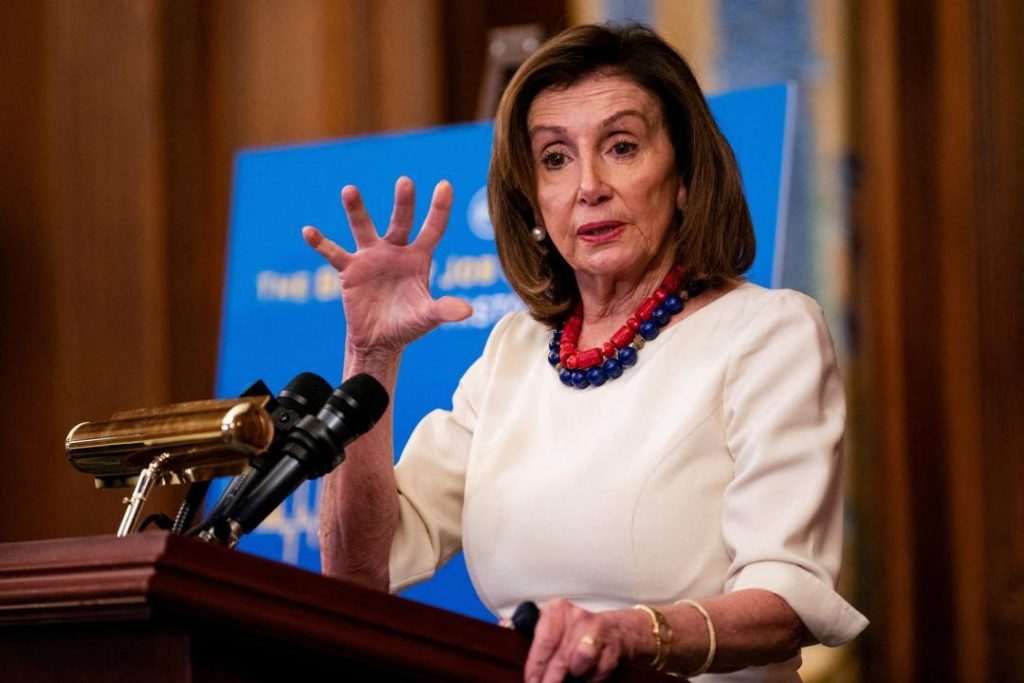
What is the PELOSI Act & Why is it Named After Former US Speaker Nancy Pelosi?
The Preventing Elected Leaders from Owning Securities and Investments (PELOSI) Act, reintroduced by US Senator Josh Hawley, aims to prohibit lawmakers and their spouses from holding or dealing in stocks while holding office. This legislation has raised eyebrows, particularly due to its association with former US Speaker Nancy Pelosi, who reportedly enjoyed significant stock market gains during her term as Speaker.
So, what exactly is the PELOSI Act, and why is it named after Nancy Pelosi?
What is the PELOSI Act?
The PELOSI Act seeks to address the long-standing issue of lawmakers engaging in insider trading and conflicts of interest. The bill proposes to prohibit lawmakers, as well as their spouses, from owning or trading individual stocks, bonds, commodities, or other securities. However, lawmakers would be allowed to invest in mutual funds (MFs), exchange-traded funds (ETFs), and Treasury bonds.
The idea behind the bill is to prevent lawmakers from using their positions to gain an unfair advantage in the stock market. By prohibiting them from holding individual stocks, the bill aims to reduce the risk of insider trading and conflicts of interest.
Why is the PELOSI Act named after Nancy Pelosi?
The PELOSI Act is named after Nancy Pelosi due to her alleged stock market gains during her term as Speaker of the House of Representatives. According to reports, Pelosi and her husband, Paul Pelosi, made significant profits from the sale of stocks in companies that received government funding or were affected by government policies.
In 2020, it was reported that the Pelosis made a profit of over $5 million from the sale of Tesla stock, which was a significant contributor to their overall net worth. The sale came just days after Nancy Pelosi led a group of lawmakers to meet with Tesla CEO Elon Musk to discuss the company’s plans for a new factory in Texas.
The PELOSI Act’s association with Pelosi has sparked controversy, with opponents arguing that the bill is a thinly veiled attempt to target the former Speaker and her husband. Proponents of the bill, however, argue that it is a necessary step to address the broader issue of conflicts of interest among lawmakers.
Why do lawmakers need restrictions on their investments?
Lawmakers are in a unique position to influence government policies and decisions that can impact the stock market. By holding individual stocks or other securities, lawmakers may be able to use their positions to gain an unfair advantage in the market.
For example, a lawmaker who owns stock in a company that is seeking government funding or has a stake in a policy issue may be more likely to use their influence to benefit the company. This can create a conflict of interest and undermine the public’s trust in the legislative process.
By prohibiting lawmakers from holding individual stocks, the PELOSI Act aims to prevent these types of conflicts of interest and ensure that lawmakers are acting in the public’s best interests.
What are the implications of the PELOSI Act?
If passed, the PELOSI Act would have significant implications for lawmakers and their spouses. It would require them to divest their holdings in individual stocks and shift their investments to MFs, ETFs, and Treasury bonds.
While some lawmakers may initially resist the change, the PELOSI Act could ultimately benefit the public by reducing the risk of insider trading and conflicts of interest. It could also promote greater transparency and accountability among lawmakers.
Conclusion
The PELOSI Act is a controversial bill that aims to address the issue of conflicts of interest among lawmakers. By prohibiting them from holding individual stocks, the bill seeks to prevent lawmakers from using their positions to gain an unfair advantage in the market.
The bill’s association with Nancy Pelosi has sparked controversy, but its underlying goal is to promote transparency and accountability in the legislative process. As the bill works its way through Congress, it will be important to consider the implications of the PELOSI Act and how it can help to restore trust in the government.






